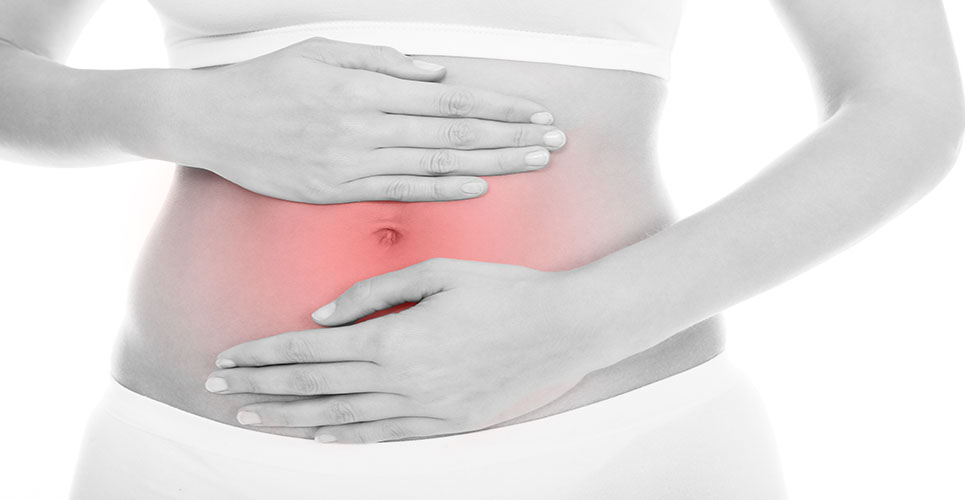The results from a post-hoc analysis of the PURSUIT-Maintenance study in ulcerative colitis, (1) which included Simponi® (golimumab) patients have shown the association of patient symptoms such as stool frequency and rectal bleeding with continuous clinical response (CCR) in patients with moderate to severe ulcerative colitis. (2) CCR, which is defined as a clinical response maintained through week 54, was observed in patients treated with golimumab in the PURSUIT-Maintenance study. This post-hoc analysis of the PURSUIT-Maintenance study, which was funded by MSD, suggests that patients’ own monitoring of stool frequency and rectal bleeding may be considered to help determine their response to treatment, in addition to conventional endpoints such as physician global assessment (PGA) and mucosal healing.
Lead study investigator, Professor Walter Reinisch, McMaster University, Hamilton, Canada, comments “For patients who are affected with a chronic inflammatory disease like ulcerative colitis, outcomes which are reflective of a durable and sustainable clinical and endoscopic improvement are important, and they should also be easily and non-invasively assessable. The fact that the combination of scoring rectal bleeding and stool frequency could potentially be associated with CCR would help physicians’ understanding on how to empower patients for self-monitoring.”
Further data analysis from UC CARES report on quality of life and loss of productivity
The new findings from a post-hoc analysis of the UC CARES study, funded by MSD and also presented at UEGW 2015, suggest that uncontrolled patients with ulcerative colitis may have a lower quality of life and higher loss of productivity compared to controlled patients. (3)
Dr Sumesh Kachroo, UC CARES Study Investigator and Director of Outcomes Research at MSD, says “The UC CARES Study highlights that a high proportion of UC patients had uncontrolled disease according to the study definition, and may result in lower quality of life (QoL) and comparatively higher productivity losses.”
PURSUIT-Maintenance study and continuous clinical response
In the PURSUIT-Maintenance study, patients who responded to golimumab induction at week six were randomised to placebo or golimumab 50 or 100mg every four weeks. (1) In this post-hoc analysis (n=322 at week 54), ulcerative colitis disease activity was assessed using the following: stool frequency, rectal bleeding, stool frequency and rectal bleeding (PRO1+2), PGA, endoscopy, and partial Mayo score.* The association of CCR with each Mayo score component was assessed by the area under receiver operating characteristic (ROC) curve (AUC), and accuracy was compared. In this analysis, the stool frequency and rectal bleeding combined (PRO1+2), PGA, endoscopy subscore and partial Mayo score showed association with CCR (ROC AUC of 0.949, 0.943, 0.941, and 0.968 for PRO1+2, PGA, endoscopy, and partial Mayo score at week 54, respectively). (2)
*Mayo score is a scoring system for the assessment of ulcerative colitis activity. It is a composite of stool frequency, rectal bleeding, endoscopy findings and physician’s global assessment. It ranges from 0 to 12 with higher scores indicating more severe disease activity. (4)
UC CARES Study and quality of life in UC patients
A post-hoc analysis of the UC CARES study assessed the impact on quality of life (QoL) and work productivity in biologics-naïve moderate to severe UC patients treated with conventional therapies (including thiopurines) in Europe. (3) In another post-hoc analysis of 103 patients receiving thiopurines (94.2%), aminosalicylates (75.7%), corticosteroids (18.4%) and other types of immunosuppressants (1.0%), the majority (89%) of biologics-naïve UC patients did not achieve disease control and half of patients (49.5%) were dissatisfied with their UC treatment, confirming previous data from the UC CARES study. (5)
In a sub-analysis of 250 patients, including 218 uncontrolled UC patients receiving thiopurines (63.2%), aminosalicylates (75.2%), corticosteroids (23.6%) and other types of immunosuppressants (3.6%), patients were asked to complete a measure of health status using the EQ-5D-5L descriptive system plus a visual analogue scale (VAS), Quality of Life in Inflammatory Bowel Disease (SIBDQ) and Work Productivity Activity Impairment: UC (WPAI:UC) questionnaires. QoL and work productivity loss between controlled and uncontrolled patients were compared using chi-square and t-test. Overall, UC patients with uncontrolled disease experienced a lower QoL and a higher percentage of productivity loss than controlled UC patients with controlled disease. (3)
References
- Sandborn WJ et al. Subcutaneous golimumab maintains clinical response in patients with moderate-to-severe ulcerative colitis. Gastroenterology 2014;146:96–109.
- Reinisch W et al. Patient-reported outcomes can be used to monitor continuous clinical response in patients with moderately to severely active ulcerative colitis treated with golimumab: results from the PURSUIT maintenance study. Poster P1614, presented at UEGW 2015.
- Van Assche G et al. Health related quality of life and productivity loss among moderate to severe ulcerative colitis patients treated with conventional therapies in Europe: The UC Cares (Ulcerative Colitis Condition, Attitude, Resources and Education Study). Abstract #1929, presented at UEGW 2015.
- Rutgeerts P et al. Infliximab for induction and maintenance therapy for ulcerative colitis. N Engl J Med 2005;353:2462–76.
- Van Assche G et al. Disease control and unmet needs among moderate to severe ulcerative colitis patients treated with thiopurines in Europe: The UC Cares (Ulcerative Colitis Condition, Attitude, Resources and Educational study). Abstract #1926, presented at UEGW 2015.

